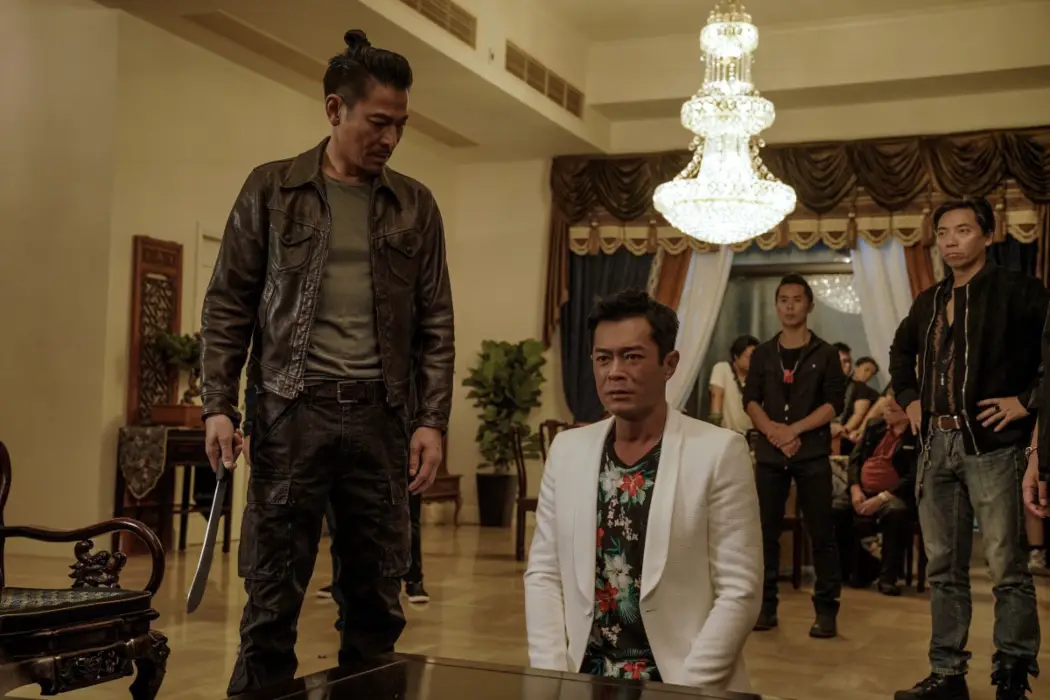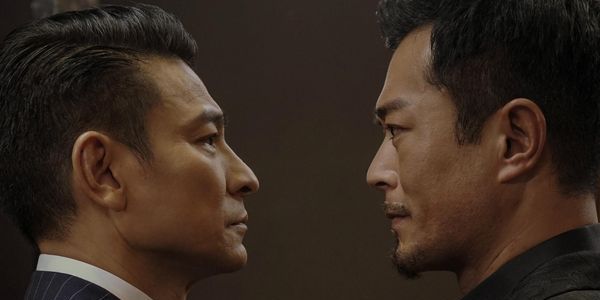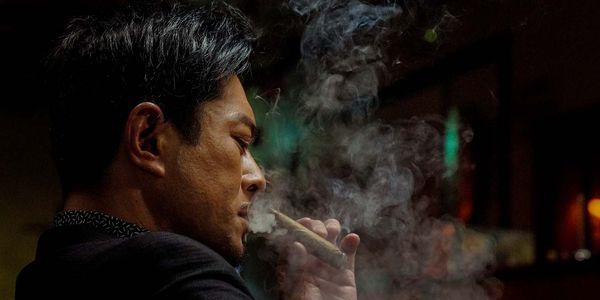Far East Film Festival 2020: THE WHITE STORM 2: DRUG LORDS

Wilson is a cinema enthusiast based out of Toronto, Canada.…
Producing a sequel that bears no narrative association to the original film has become somewhat of a common practice in Hong Kong cinema over the past few years. These so-called “spiritual” sequels align with their predecessors on a thematic level and often cast similar actors and actresses (playing new roles), but the film itself is essentially a completely separate cinematic endeavour. Herman Yau‘s The White Storm 2: Drug Lords is an example of such a sequel, which fails in comparison to the original film, but is still entertaining nonetheless.
Following the roadmap of the original White Storm film in 2013, Drug Lords once again tackles a narrative that is deeply rooted in the underground triad and drug trafficking world. The story centers around Yu Shun Tin (Andy Lau), a former gangster turned legitimate businessman, who vows to take down the city’s most notorious drug lord, Feng Chun Kwok (Louis Koo). This adversary relationship is complicated by a long history of conflict between these two characters, who are forced to revisit their past as their ambitions propel them to move forward. Michael Miu, Kent Cheng, Karena Lam, Gordon Lam, and Cherrie Ying round out the cast as supporting players on both sides of the law.
A dynamic pairing of thespians
The significance of pairing Lau and Koo in a triad film is likely much more apparent for regular fans of Hong Kong cinema. As the circle of bona fide local superstars continues to rapidly shrink in Hong Kong, these two actors are somewhat of an endangered species. While not nearly as bombastic as Lau’s pairing with Tony Leung in 2002’s Infernal Affairs (which was remade by Martin Scorsese as The Departed), a Lau/Koo collaboration is still a cause for excitement. Over the past two decades, the two have only appeared together in 1999’s Century of the Dragon and 2007’s Protégé. And not surprisingly, both films tackled the undercover cop and triad underworld narrative.

This dynamic pairing of talents is nothing short of a spectacle, especially given the dwindling currency of growing star power within the local film industry. And while many of Hong Kong’s superstars often appear together on-screen – with Koo, Nick Cheung, and Lau Ching Wan being prime examples, as per the original White Storm – this particular pairing is certainly a rare occurrence. It might not be as monumental as Robert De Niro pairing up with Joe Pesci or Al Pacino in a gangster film (The Irishman) or Leonardo DiCaprio and Kate Winslet reteaming for a love story (Revolutionary Road), but certainly falls on a similar wavelength.
Seeing a staple of Hong Kong cinema lose its edge
Like many other industries around the world, the gangster/triad subgenre has always been a staple of Hong Kong cinema. These were the films that popularized stories of heroic bloodshed and spawned countless characterizations of villains with a conscience, and as a result, helped launch/maintain the careers of most (male) Hong Kong thespians working today. But despite always serving a fruitful source of entertainment, the triad genre itself has certainly been showing some wear and tear over the years.
In fact, these types of films often beg the question of whether there’s any ingenuity left in the genre itself. And a film like Drug Lords, unfortunately, punctuates a response that fails to move the creative needle in any significant way. On paper, it gets brownie points for featuring what one would typically expect from a well-rounded triad narrative; there’s the guilty conscience of a criminal, betrayals and violent ladder-climbing tactics and a lot of gunfights, among other things.

But despite fairly impressive production values and decent filmmaking (and acting) all around, the usual guise of excitement seems to be missing. The flare of seeing cops and triad members verbally spar and point out their chests just doesn’t ignite the same level of enthusiasm one might expect. This is a tantalizing thought because Drug Lords is a well-intentioned and technically impressive piece of filmmaking, yet still feels relatively flawed. It’s perhaps a sign that the genre might be overplayed, which to be honest, is an observation that many have been making for years.
A film that didn’t go far enough
While not landing with as much gravitas as it probably hoped to, Drug Lords shouldn’t be faulted for its extremely valiant efforts at being a thrilling piece of cinema. Herman Yau, who takes over the reins from Benny Chan (who directed the original White Storm), is generally known for his more bombastic style of filmmaking, and that clearly shines through here. From Koo’s character sporting gold-rimmed prosthetic fingers to the car chase set within a local subway station during the film’s climactic ending, the “go big or go home” approach to cinema is put on full display.
This push for theatrics aside, however, Yau’s efforts still feel muted. Given the overall direction of Drug Lords, it almost feels as if the film didn’t go far enough, and is somehow stalled between a figurative space that separates serious dramatics from over-the-top theatrics. Being unable to shift gears and ascent to that next stage perhaps aligns with the triad genre itself. Doing much of the same with a little spark of ingenuity simply isn’t enough anymore. Overall, Drug Lords is certainly an entertaining piece of filmmaking that will still delight fans of Hong Kong cinema. But on a more objective level, it just fails to engage in a way that its premise and onscreen credits would have suggested.
Have you seen The White Storm 2: Drug Lords? What did you think? Let us know in the comments below!
The White Storm 2 – Drug Lords is streaming on Netflix and iTunes.
Watch The White Storm 2: Drug Lords
Does content like this matter to you?
Become a Member and support film journalism. Unlock access to all of Film Inquiry`s great articles. Join a community of like-minded readers who are passionate about cinema - get access to our private members Network, give back to independent filmmakers, and more.
Wilson is a cinema enthusiast based out of Toronto, Canada. He escapes from his day job by writing random thoughts about cinema on the internet. Although he has a longstanding penchant for Hong Kong cinema, he considers himself to be an advocate for Asian cinema in general. He has been attending the Toronto International Film Festival every year since 2005, and more of his work can be found on his website: www.wilson-kwong.com.













